David J. Bier is the director of immigration studies at the Cato Institute. He is an expert on legal immigration, border security, and interior enforcement. Bier’s work has appeared in the New York Times, the Washington Post, USA Today, and many other print and online publications. In addition, the US Supreme Court and multiple federal appeals courts have cited his research and writing. Bier has testified before committees in the US House of Representatives and Senate on several occasions. From 2013 to 2015, Bier drafted immigration legislation as a senior policy adviser for Rep. Raúl Labrador (R‑PR), who was, at that time, a member of (and later the chairman of) the House Judiciary Committee’s Subcommittee on Immigration and Border Security.
Sphere Summit
2024 Sphere Summit
The Foundations of Civic Culture
Sphere Summit, a full‐scholarship professional development program for grades 5–12 educators, returns as a fully in‐person experience in Washington, DC.
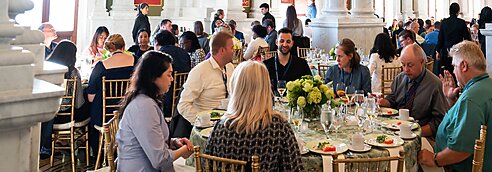
About
Books and Resources
Browse downloadable books and interactive tools.
Frequently Asked Questions
View frequently asked questions (FAQs) about Sphere Summit participation: general information, costs, applications and deadlines, and more.
About
The application site is now closed for the Sphere Summit.
Sphere Summit, a full scholarship professional development program for grades 5–12 educators, returns as a fully in‐person experience in Washington, DC, and will run July 28–August 1. Benefits include room and board, 20+ hours of professional development, classroom resources, and a $500 travel stipend upon completion of the program.
The Sphere Summit is a full scholarship summer program for grades 5–12 educators and administrators. Summit is open to teachers of all subject areas and disciplines.
The Sphere Summit features presentations by leading policymakers, scholars, and academics, who discuss key public policy issues facing our nation today. Topics covered include free speech, the health of our democracy, criminal justice reform, approaches to diversity in education, the economy, and many others. The Summit also features professional development workshops conducted by leaders in civic education on how to bring these ideas into your classroom.
The Sphere Summit aims to restore a spirit of civil, constructive, and respectful discourse and engagement and to return facts, analysis, and research to primacy as the vehicles for discussion and debate.
Program
Program
Sunday, July 28
Registration
Welcome Reception
Welcome Remarks
Dinner
Keynote Address

Daryl Davis
Musician and Race Relations Expert
Afterglow
Monday, July 29
Breakfast
Break
Application Workshop
Bringing Civic Culture to Your Classroom
Sphere Education Initiatives Team
Lunch
POLICY DISCUSSIONS
Criminal Justice Reform

Ryan Hall
Education Coordinator, Eastern State Penitentiary

Clark Neily
Senior Vice President for Legal Studies, Cato Institute

Kerry Sautner
EdD, Chief Learning Officer at the National Constitution Center
Criminal Justice Reform Application Workshops
Session A: Criminal Justice Reform Application Workshop
Session B: Middle School Toolkit
Break
FOUNDATIONS OF CIVIC CULTURE
Key Supreme Court Cases in History

Richard Kahlenberg
Director of the American Identity Project at the Progressive Policy Institute, and Professional Lecturer, Trachtenberg School of Public Policy and Administration, George Washington University

Walter Olson
Senior Fellow, Robert A. Levy Center for Constitutional Studies, Cato Institute
Moderated by

Caleb O. Brown
Director of Multimedia, Cato Institute
Free Time
Reception
Dinner
Afterglow
Tuesday, July 30
CIVIC CULTURE AND FOUNDATIONS
Breakfast and Teacher Panel

Greg Nelson
Klein Independent School District, Houston, Texas; Lone Star College

Betty Nordengren
Educator and Sphere Content Contributor

Zach Robbins
Venture Academy, Minneapolis, Minnesota
Free Morning in Washington DC
Resume Workshop (9:15 — 10:15 AM)
APPLICATION WORKSHOPS
Teaching Difficult Topics: Immigration
POLICY SESSIONS
Session A: Human Progress

Chelsea Follett
Managing Editor of Humanprogress.org
Session B: Health Care

Michael Cannon
Director of Health Policy Studies, Cato Institute

Harold Pollack
Helen Ross Professor at the Crown Family School of Social Work, Policy, and Practice, University of Chicago
Moderated by

Caleb O. Brown
Director of Multimedia, Cato Institute
Break and Transition to Hotel
APPLICATION WORKSHOPS
- Retro Report
- Foundation for Economic Education
- National Constitution Center
- Incubate Debate
Free Time
Shuttle to Offsite Venue
Reception
Dinner Program

Andrew Hanauer
President and CEO, One America
Dinner
Shuttle Back to Hotel
Wednesday, July 31
Breakfast
UNDERSTANDING EACH OTHER
Members of Congress
Break and Transition to Hotel
APPLICATION WORKSHOPS
- Bill of Rights Institute
Book Talk: Digitally Invisible: How the Internet is Creating the New Underclass
- iCivics
The Civil Rights Act and your English Language Arts Classroom
- Sphere Education Initiatives
Lunch
POLICY SESSIONS
Session A: AI & Education
Moderated by

Sallie James
Director of Development, Cato Institute
Session B: Environmental Policy

Travis Fisher
Director of Energy and Environmental Policy Studies, Cato Institute

Andrew Rumbauch
Director, Center for Technology Innovation, Brookings Institution
HOUSING
Session A: Housing Policy and Poverty Alleviation

Tracy Hadden Loh
Fellow, Brookings Metro and Anne T. and Robert M. Bass Center for Transformative Placemaking

Emily Hamilton
Senior Research Fellow, Mercatus Center

Caleb O. Brown
Director of Multimedia, Cato Institute
Session B: Understanding Communism

Ken Pope
Vice President for Academic Operations and Strategic Partnerships, Victims of Communism Memorial Foundation

Marina Davidovich
Freedom Activist, Elite Rhythmic Gymnastics Coach
Break
Free Evening in Washington DC
Thursday, August 1
Brunch
POLICY WORKSHOP
Foreign Policy

Justin Logan
Senior Fellow, Cato Institute
Closing Remarks
Certificate and Stipend Distribution
Speakers

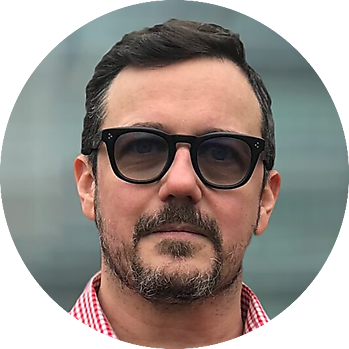
Caleb Brown is the director of multimedia at the Cato Institute and the host and executive producer of the Cato Daily Podcast, a role he has held since 2007. He is also responsible for Cato Audio, which he has been producing since 2008. Before his tenure at Cato, Brown was a reporter at WHAS AM in Louisville, where he spearheaded the KentuckyVotes.org project for the Bluegrass Institute. This initiative prompted Kentucky lawmakers to begin posting their votes online at the end of each legislative day, significantly enhancing transparency and accountability in the state legislature. Brown’s background in multimedia and his commitment to providing insightful daily commentary have made him a respected figure in policy communication.
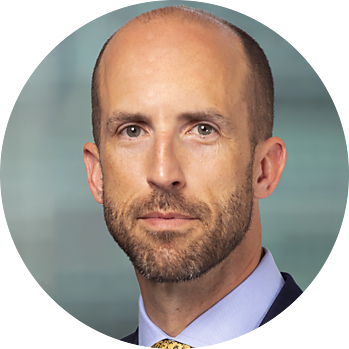
Michael F. Cannon is the Cato Institute’s director of health policy studies. Cannon is “an influential health‐care wonk” (Washington Post), “ObamaCare’s single most relentless antagonist” (New Republic), “ObamaCare’s fiercest critic” (The Week), “the intellectual father” of King v. Burwell (Modern Healthcare), and “the most famous libertarian health care scholar” (Washington Examiner). Washingtonian magazine named Cannon one of Washington, DC’s “Most Influential People” from 2021 to 2024. Cannon has appeared on ABC, Al Jazeera, BBC, CBS, CNN, CNBC, CSPAN, Fox News Channel, NPR, and other broadcast media. His articles have appeared in the Wall Street Journal; the New York Times; USA Today; the Washington Post; the Los Angeles Times; the New York Post; the Chicago Tribune; the Chicago Sun‐ Times; the San Francisco Chronicle; SCOTUSBlog; Huffington Post; Forum for Health Economics and Policy; JAMA Internal Medicine; Health Matrix: Journal of Law‐Medicine; Harvard Health Policy Review; the Yale Journal of Health Policy, Law, and Ethics; the Journal of Health Politics, Policy and Law; and Quinnipiac Health Law Journal.
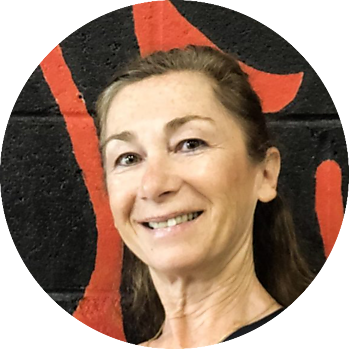
Marina Davidovich is a freedom activist and elite rhythmic gymnastics coach. In the summer of 1975, despite the uncertainty of ever seeing their family and friends again, Davidovich and her husband Felix, their young daughter Mariana, and her mother‐in‐law Ida left the USSR in search of a better life. They spent two weeks in Vienna and six months in Rome before being sponsored by the Jewish Family Service. Soon after, they settled in Hartford, Connecticut, arriving on January 16, 1976. At just 21, Davidovich faced the challenge of starting anew in a country where she knew no one and didn’t speak the language. Yet, driven by the desire to give their daughter a life free from the scarcity and oppression of the Soviet Union, her husband quickly found work at the General Elevator Company and Davidovich began teaching gymnastics at the local YWCA. Their hard work and determination paid off when they opened a gymnastics school, ballet studio, and day care in Jacksonville, Florida. Davidovich’s story is a powerful testament to resilience and the pursuit of freedom.
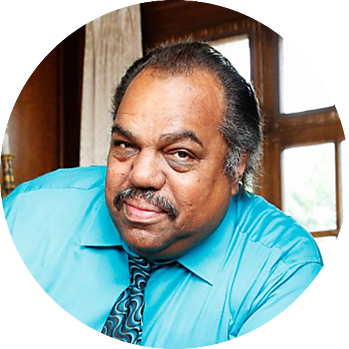
Daryl Davis is a race relations expert, public speaker, and international recording artist. After an altercation with a Ku Klux Klan (KKK) member in 1983, he has dedicated the past four decades of his life to encountering, engaging, and converting members of the KKK. Davis has captivated audiences across six continents and over 50 countries with stories from his decades of activism. He was the first black author to write detailed face‐toface interviews with KKK members in his highly acclaimed book, Klan‐Destine. His documentary Accidental Courtesy and TEDx talk with over 12 million views have also spread his methodology of racial recovery to a global audience. Davis has been the recipient of the Dr. Martin Luther King, Jr. Distinguished Service Award, the Tribeca Disruption Innovation Award, the American Ethical Union’s prestigious Elliott‐Black Award, and the Carnegie-Mellon’s Carl Sagan Award and Prize.
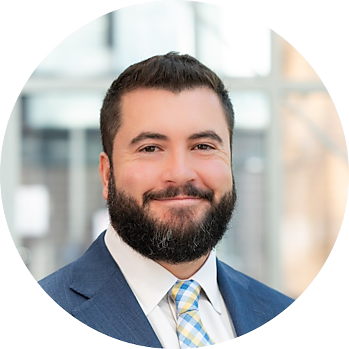
Travis Fisher is the director of energy and environmental policy studies at the Cato Institute. He has nearly 20 years of experience in energy policy, including leadership roles at the Federal Energy Regulatory Commission, the Institute for Energy Research, the Department of Energy, the Electricity Consumers Resource Council, and the Heritage Foundation. Fisher’s research focuses on the economics and reliability of electricity; the role of free markets in improving the availability and affordability of energy and natural resources; and environmental regulations that impact energy. Fisher was the lead author of the Department of Energy’s 2017 “Staff Report to the Secretary on Electricity Markets and Reliability” and has published dozens of reports and op‐eds. He also serves as a council member of the US Association for Energy Economics
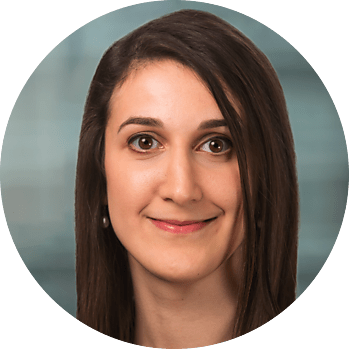
Chelsea Follet is the managing editor of HumanProgress.org, a project of the Cato Institute that seeks to educate the public on the global improvements in well‐being by providing free empirical data on long‐term developments. Follett’s first book, Centers of Progress, focuses on key cities and civilizations that have advanced human progress. Her writing has been published in the Wall Street Journal, USA Today, Newsweek, Forbes, The Hill, Business Insider, National Review, the Washington Examiner, and Global Policy Journal. She was named to Forbes’ 30 under 30 list for 2018 in the category of Law and Policy
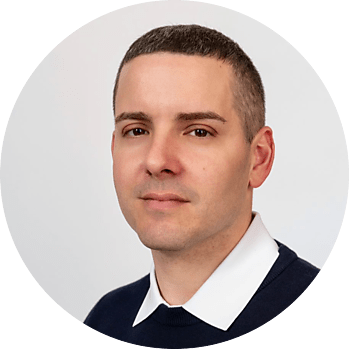
Ryan Serrano‐Hall is the education coordinator at the Eastern State Penitentiary Historic Site. In this role, he has launched innovative programming aimed at raising awareness about the negative, far‐reaching impacts that incarceration has on individuals and their communities. Previously, Serrano‐Hall served as lead educator, cofacilitating reentry simulations with the Department of Justice to bring the critical issue of inmate‐community reintegration to the public’s attention. Additionally, he has supported numerous individuals engaged in pretrial court programs or reentering society. Serrano-Hall’s efforts to create meaningful change are a testament to his dedication to leave positive, lasting impact on incarcerated peoples and the communities they inhabit.
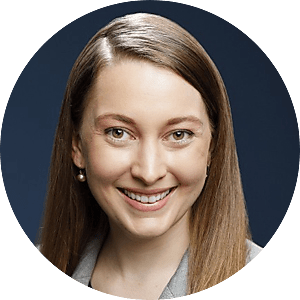
Emily Hamilton is a senior research fellow and director of the Urbanity Project at George Mason University’s Mercatus Center. Her research focuses on urban economics and land‐use policy. Hamilton publishes both academic research and policy work. Her writing has appeared in the Washington Post and the Los Angeles Times, and she writes an occasional column at Governing. Hamilton has testified before state legislatures as well as the U.S. House of Representatives. She is an advisory board member of Up for Growth and Cityscape, a journal published by the Department of Housing and Urban Development
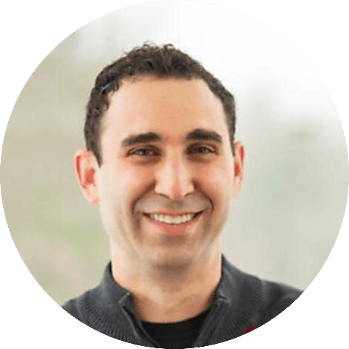
Andrew Hanauer is the president and CEO of the One America Movement, an organization founded by faith leaders to fight toxic polarization. One America supports faith leaders and faith communities to reject toxic forms of division and offer a moral vision that transcends our divisive and disconnected culture. Under Hanauer’s leadership, the One America Movement has become one of the largest and fastest growing organizations combating division in American society, quintupling in size in the past three years. Hanauer is a frequent public speaker at houses of worship of all kinds and has represented One America before gatherings of the National Governors Association, AmeriCorps, Points of Light, the Religious Action Center of Reform Judaism, and many more and on podcasts as wide ranging as Fuller Seminary and Islamic Relief USA. His work has been published or featured by USA Today, the Washington Post, National Public Radio, Salon, the Christian Citizen, and media outlets across the United States
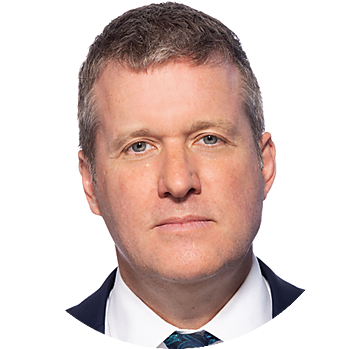
Simon Hankinson is a senior research fellow in the Border Security and Immigration Center at the Heritage Foundation. From 1999 to 2023, he was a foreign service officer serving in India, Fiji, Ghana, Slovakia, Togo, Washington, DC, Marseille, and Nairobi. Prior to entering the State Department, Hankinson worked as a lawyer in London and then taught history, English, and drama at a private school in Miami.
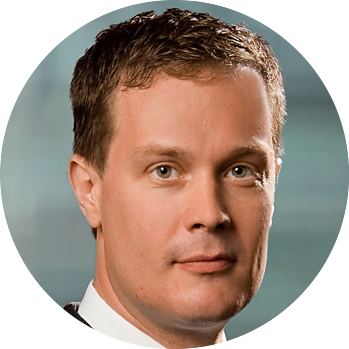
Gene Healy is senior vice president for policy at the Cato Institute. His research interests focus on executive power and the role of the presidency, as well as federalism and overcriminalization. He is the author of Indispensable Remedy: The Broad Scope of the Constitution’s Impeachment Power and The Cult of the Presidency: America’s Dangerous Devotion to Executive Power and is editor of Go Directly to Jail: The Criminalization of Almost Everything. Healy has appeared on PBS NewsHour and NPR’s Talk of the Nation, and his work has been published in the Los Angeles Times, the New York Times, the Chicago Tribune, the Legal Times, and elsewhere.

Jennifer Huddleston is a senior fellow in technology policy at the Cato Institute. Her research focuses on the intersection of emerging technology and law with a particular interest in the interactions between technology and the administrative state. Huddleston’s work covers topics including antitrust, online content moderation, data privacy, and the benefits of technology and innovation. Her work has appeared in USA Today, National Review, the Chicago Tribune, Slate, RealClearPolicy, and US News and World Report. She has been published in multiple law journals, including the Berkeley Technology Law Journal, George Mason Law Review, Oklahoma Law Review, and Colorado Technology Law Journal.

Howard Husock is a senior fellow in domestic policy studies at the American Enterprise Institute (AEI), where he focuses on municipal government, urban housing policy, civil society, and philanthropy. Before joining AEI, Husock was vice president for research and publications at the Manhattan Institute. He has also been a director of case studies in public policy and management at the Harvard Kennedy School, a member of the board of directors of the Corporation for Public Broadcasting, and a journalist and Emmy‐winning documentary filmmaker. Husock has been widely published in policy journals and the popular press, including in the New York Times and the New York Times Magazine, the Wall Street Journal, The Atlantic, and The Hill, as well as many book publications.
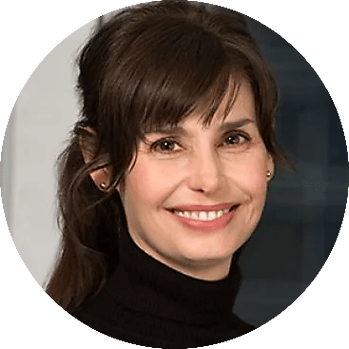
Sallie James joined the Cato Institute in 2006 as a trade policy analyst, becoming a director of development in 2014. Before joining Cato, James was an executive officer in the Office of Trade Negotiations in the Australian Government’s Department of Foreign Affairs and Trade, working on industrials market access negotiations. Prior to that, she was a senior policy adviser in the Australian Government’s Department of Agriculture, Fisheries and Forestry. She held numerous research and teaching assistant positions and her articles have been published in the Australian Journal of Agricultural and Resource Economics, the European Review of Agricultural Economics, the San Francisco Chronicle, the Orange County Register, the Milwaukee Journal Sentinel, the Minneapolis Star Tribune, and other American newspapers. James has appeared on BBC World, CNBC, MSNBC, CNN, Fox News Channel, Bloomberg TV, NPR, and other TV and radio outlets.
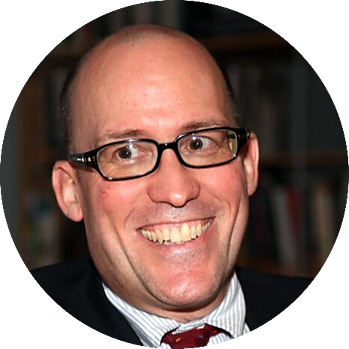
Richard D. Kahlenberg is a professorial lecturer at George Washington University’s Trachtenberg School of Public Policy and Public Administration, where he teaches a class on Civil Rights and Economic Inequality. Known as “the intellectual father of the economic integration movement” in K–12 schooling and “the nation’s chief proponent of class‐based affirmative action in higher education admissions,” Kahlenberg is an authority on housing segregation, teachers’ unions, charter schools, and labor organizing. He serves as director of housing policy and director of the American Identity Project at the Progressive Policy Institute. Previously, Kahlenberg was a nonresident scholar at Georgetown University’s McCourt School of Public Policy and a senior fellow at the Century Foundation. Kahlenberg has authored or edited 18 books, including Excluded and A Smarter Charter. His articles have been published in the New York Times, the Washington Post, and the Wall Street Journal. He has also appeared on major news networks, including ABC, CBS, CNN, and MSNBC.
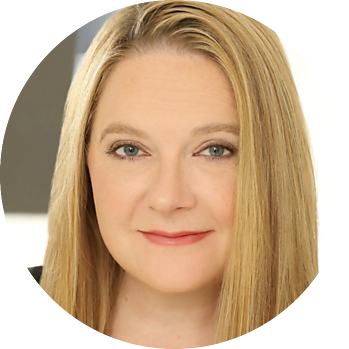
Kristi Kendall is president of Kristi Kendall and Co. and an expert in content production and storytelling. She is the director of the documentary UNDIVIDE US, which addresses toxic polarization in America. Kendall began her career in 1997 at ABC News’ 20/20 where she produced nearly a hundred pieces on complex policy and economic ideas. She later became John Stossel’s executive producer at Fox News and Fox Business, launching his weekly show and overseeing numerous documentaries. In 2014, she joined New Balloon as EVP, producing notable projects like The Creative Brain, Harriet, Beasts of No Nation, and Last Days in the Desert. Kendall has received several awards, including the Paul Mongerson Prize for Investigative Reporting and the Michael DeBakey Journalism Award.
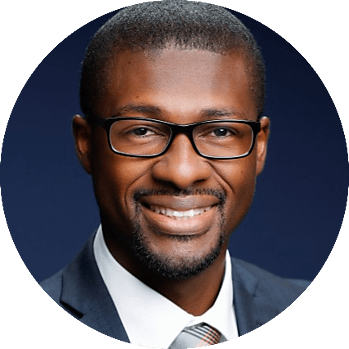
Ben Klutsey serves as the executive director of the Mercatus Center at George Mason University, where he advances dialogue and ideas of a free society. Previously a fellow at Mercatus, his research focused on financial markets and the 2008 financial crisis. Klutsey spent four years at the Institute of International Finance before returning to the Mercatus Center to manage financial regulation and monetary policy research programs. He coedited the book Reframing Financial Regulation: Enhancing Stability and Protecting Consumers (with Hester Peirce) and starred in the documentary UNDIVIDE US. As the founding director of the Mercatus Center’s Pluralism and Civil Exchange program, Klutsey spearheads initiatives to foster understanding of pluralism. His leadership drives the Mercatus Center’s mission to inform policymakers, media, and academics through rigorous research and analysis.
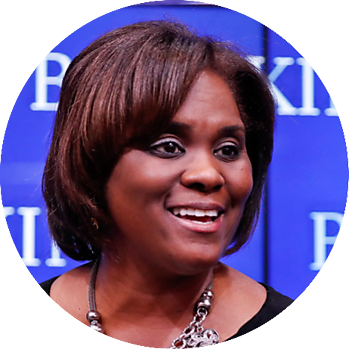
Nicol Turner Lee is a senior fellow in governance studies, the director of the Center for Technology Innovation, and the coeditor in chief of TechTank. Turner Lee researches public policy designed to enable equitable access to technology across the United States. She also researches ways to harness technology’s power to create change in communities across the world. Turner Lee’s work also explores global and domestic broadband deployment and internet governance issues. She is an expert on the intersection of race, wealth, and technology within the context of civic engagement, criminal justice, and economic development. Turner Lee previously served as vice president and chief research and policy officer at the Multicultural Media, Telecom and Internet Council—a national nonfor‐profit organization dedicated to promoting and preserving equal opportunity and civil rights in the mass media, telecommunications, and broadband industries.
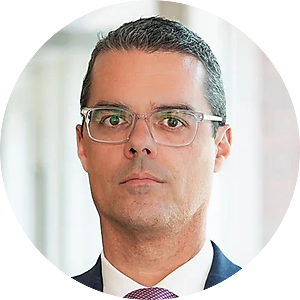
Justin Logan is the director of defense and foreign policy studies at the Cato Institute. He is an expert on US grand strategy, international relations theory, and American foreign policy. His current research focuses on the shifting balance of power in Asia—specifically with regard to China—and the limited relevance of the Middle East to US national security. He has authored numerous policy studies and articles on topics including international relations theory, US‐China policy, US‐Russia policy, stabilization and reconstruction operations, and the policy approaches to a nuclear Iran. His articles have appeared in International Security, the Journal of Strategic Studies, Strategic Studies Quarterly, Foreign Policy, the National Interest, the Harvard International Review, Orbis, the Foreign Service Journal, National Review, Politico Magazine, and the American Prospect, among others. Logan holds a master’s degree in international relations from the University of Chicago and a bachelor’s degree in international relations from American University
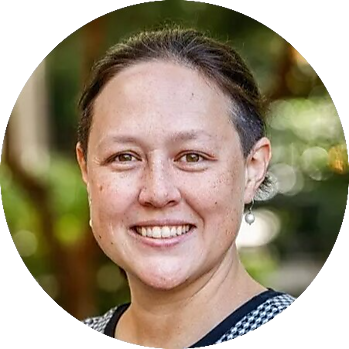
Tracy Hadden Loh is a fellow with the Anne T. and Robert M. Bass Center for Transformative Placemaking at Brookings Metro, where she integrates her interests in commercial real estate, infrastructure, racial justice, and governance. She serves on the boards of the Washington Metropolitan Area Transit Authority and Greater Washington. Her most recent writing includes two coauthored chapters in Hyperlocal: Place Governance in a Fragmented World and a series on the future of downtowns, including what to do about public safety and adaptive reuse. She also previously served two years on the city council of Mount Rainier, a small town in Prince George’s County, Maryland
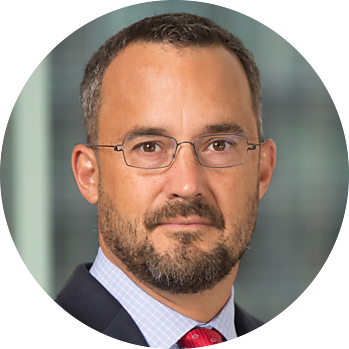
Clark Neily is senior vice president for legal studies at the Cato Institute. His areas of interest include constitutional law, over‐criminalization, coercive plea bargaining, police accountability, and gun rights. Before joining Cato in 2017, Neily was a senior attorney and constitutional litigator at the Institute for Justice and director of the Institute’s Center for Judicial Engagement. Neily is an adjunct professor at George Mason’s Antonin Scalia School of Law, where he teaches constitutional litigation and public‐interest law. He served as co‐counsel in District of Columbia v. Heller in which the Supreme Court held that the Second Amendment protects an individual’s right to own a gun. Neily is the author of Terms of Engagement: How Our Courts Should Enforce the Constitution’s Promise of Limited Government.
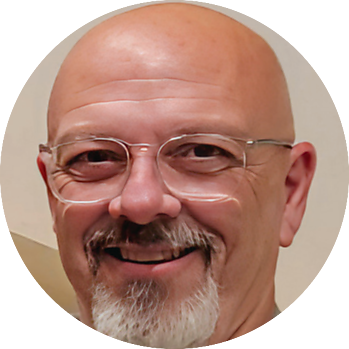
Greg Nelson found his true calling in education after two decades in the hospitality industry. With over 21 years of experience, he now teaches at Klein Independent School District and Lone Star College in Houston, Texas. Nelson’s diverse background includes an undergraduate degree from the University of Louisiana at Lafayette and a Master of Arts in economics, education, and entrepreneurship from the University of Delaware, which he earned in 2019. Nelson’s unique blend of real‐world business experience and academic expertise allows him to bring a dynamic, engaging perspective to the classroom.

Betty Nordengren is a veteran educator, with over 15 years of experience as an English as a second language‐endorsed K–8 teacher in West Chicago, Illinois. Passionate about fostering respectful dialogue in her multilingual classroom, Nordengren has contributed extensively to Sphere’s civil discourse curriculum. An International Society for Technology in Education–certified educator and Guardians of Democracy Current and Controversial Discussions Bronze Educator, Nordengren uses her expertise to create engaging learning environments. Combining her classroom experience with a master’s degree in public policy from DePaul University, Nordengren brings a unique perspective to address the importance of civil discourse in education and society, enriched by her practical experience using civil discourse and oracy techniques in the classroom, and her research on factors impacting classroom talk reforms in the United States and the United Kingdom.
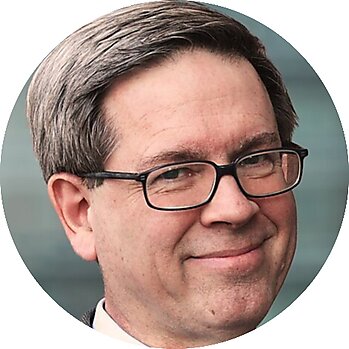
Walter Olson is a senior fellow at the Cato Institute’s Robert A. Levy Center for Constitutional Studies and is known for his writing on law, public policy, and regulation. His first book, The Litigation Explosion, was one of the most widely discussed general‐ audience books on law of its time. It led the Washington Post to dub him an “intellectual guru of tort reform.” His books since have stirred discussion on topics ranging from workplace law to mass litigation to the state of law schools. He is known as founder and principal writer of the longest ‐running blog on law, Overlawyered, which ran from 1999 to 2020. Having been named by Gov. Larry Hogan as co‐chair of commissions aimed at ending the practice of gerrymandering, Olson has advised many public officials from town councils to the White House and is active in civic affairs in his home state of Maryland. Additionally, he is often interviewed for his expertise on elections and redistricting law. Before joining Cato, Olson was associated with the Manhattan Institute and American Enterprise Institute and was an editor at the magazine, Regulation (edited by Antonin Scalia). Olson’s more than 400 broadcast appearances include the BBC, Oprah, and most leading media outlets
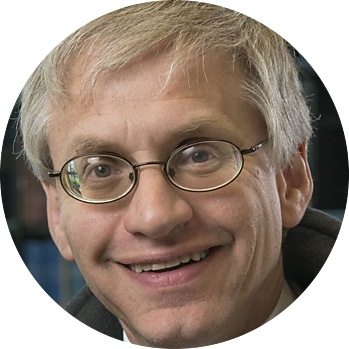
Harold Pollack is the Helen Ross Professor at the Crown Family School of Social Work, Policy, and Practice at the University of Chicago. He is also an affiliate professor in the Biological Sciences Collegiate Division and the Department of Public Health Sciences. Cofounder of the University of Chicago Crime Lab, he is codirector of the University of Chicago Health Lab. He is a committee member of the Center for Health Administration Studies at the University of Chicago. His current National Institutes of Health–funded research concerns improved services for individuals at the boundaries of the behavioral health and criminal justice systems, disabilities, and two new major efforts to address the opioid epidemic in Illinois and across the nation. He is the past president of the health politics and policy section of the American Political Science Association and has been appointed to three committees of the National Academy of Sciences.
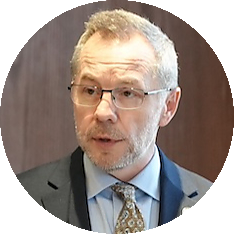
Ken Pope is Vice President for Academic Operations and Strategic Partnerships of the Victims of Communism Memorial Foundation. Previously he had a 34‐year career in the U.S. Army, the consulting industry and academia. While in uniform, Pope served in a variety of Armored Reconnaissance, Special Operations and Russian Foreign Area Officer (FAO) assignments in Europe, the Middle East, and Central America. He commanded an Armored Cavalry Troop during the Persian Gulf War and a Special Operations unit focused on Central America. Pope has over 12 years of operational fieldwork experience as an Army FAO with a variety of assignments in Russia, Ukraine, Estonia, Azerbaijan, Georgia and Kosovo. In the consulting industry, he led teams that provided strategy, planning, analysis and wargaming support to the Office of the Secretary of Defense, Joint Staff, and Combatant Commands. Pope also served as an Assistant Professor at the Center for Intelligence and Security Studies at the University of Mississippi where he taught a senior capstone program, courses on intelligence and advanced analytics, and led the center’s national security simulations.

Zack Robbins serves as a social studies teacher and the team leader for the 9th and 10th grades at Venture Academy in Minneapolis, Minnesota. With a strong commitment to fostering an ideologically diverse and inclusive learning environment, he has successfully developed and implemented world history and human geography courses tailored to meet the needs of linguistically and culturally diverse students. In the classroom, Robbins encourages students to critically examine current events from multiple perspectives. He also spearheads Venture Academy’s Model UN and Youth in Government programs.
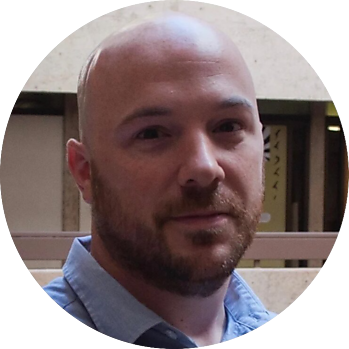
Andrew Rumbach is a senior fellow at the Urban Institute, where he co‐leads the Climate and Communities practice area within the Metropolitan Housing and Communities Policy Center. As a mixed‐methods researcher, Rumbach focuses on household and community risks associated with natural hazards and climate change and examines how federal, state, and local government policies impact hazard mitigation, climate adaptation, and community disaster recovery. Previously, Rumbach was an associate professor of urban planning at Texas A&M University and the University of Colorado Denver and an assistant professor of urban planning at the University of Hawaii. His work has been published in prominent journals, including the Journal of the American Planning Association, Housing Studies, Habitat International, and the Journal of Urban Affairs, and he has served on the editorial boards of the Journal of the American Planning Association and the Journal of Planning Literature.
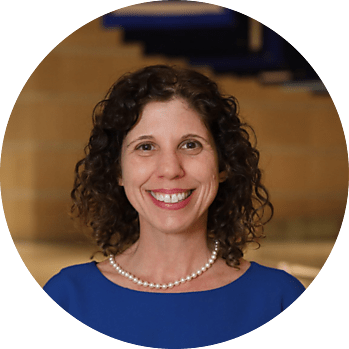
Kerry Sautner is the President and Chief Executive Officer of Eastern State Penitentiary Historic Site, Inc.—a museum dedicated to interpreting the legacy of American criminal justice reform from the site of the world’s first penitentiary. In her previous role as Chief Learning Officer at the National Constitution Center, Sautner led national civic education efforts, managing all aspects of the Center’s visitor experience and educational programming. She has a distinguished background in program development, having worked at the Franklin Institute prior to joining the National Constitution Center in 2005. Sautner has also served as an adjunct professor at Drexel University and the University of Pennsylvania, where she contributed her expertise in educational practices and program development
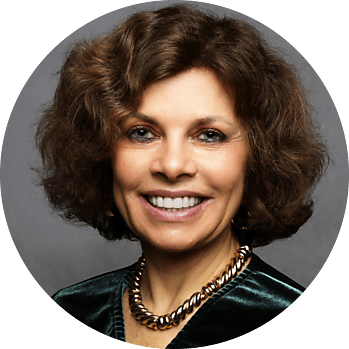
Nadine Strossen is the John Marshall Harlan II Professor of Law at New York Law School. She has written, taught, and advocated extensively in the areas of constitutional law and civil liberties, including through frequent media interviews. She is the author of Hate: Why We Should Resist It with Free Speech, Not Censorship and Defending Pornography: Free Speech, Sex, and the Fight for Women’s Rights. From 1991 through 2008, Strossen served as president of the American Civil Liberties Union (ACLU) and was the first woman to head the nation’s largest and oldest civil liberties organization. She is a member of the ACLU’s National Advisory Council as well as the advisory boards of the Electronic Privacy Information Center, the Foundation for Individual Rights and Expression, and Heterodox Academy. In 2017, the American Bar Association presented Strossen with the prestigious Margaret Brent Women Lawyers of Achievement Award. Strossen was named one of America’s 100 Most Influential Lawyers by the National Law Journal.
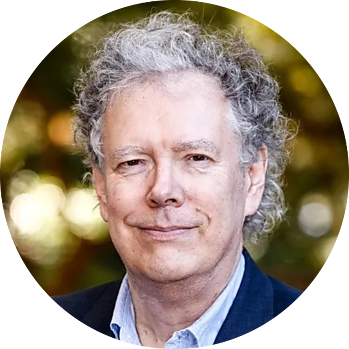
Darrell M. West is a senior fellow in the Center for Technology Innovation at the Brookings Institution and coeditor in chief of TechTank. Formerly vice president and director of governance studies, his research focuses on artificial intelligence, robotics, and the future of work. He also directs the John Hazen White Manufacturing Initiative. West was the John Hazen White Professor of Political Science and Public Policy at Brown University. West has authored numerous books, including Power Politics: Trump and the Assault on American Democracy, Turning Point: Policymaking in the Era of Artificial Intelligence (with John R. Allen), Divided Politics, Divided Nation, and The Future of Work: Robots, AI, and Automation. His book Brain Gain won the ForeWord Review Book of the Year for political science.

Ashley Woo is an associate policy researcher at the RAND Corporation. Her research interests include educational equity, supporting the learning experiences of students from historically minoritized groups, educator recruitment and retention, the diversity of the educator workforce, social and emotional learning, and instructional systems that support teaching and learning. Her recent work at RAND has focused on the policies and practices that enhance educator well‐being and retention, the characteristics of coherent instructional systems, and the impacts of political polarization on educators’ working conditions and instructional practices. Prior to joining RAND, Woo was an elementary school teacher
Books and Resources
Browse downloadable books and interactive tools.
Frequently Asked Questions
View frequently asked questions (FAQs) about Sphere Summit participation: general information, costs, applications and deadlines, and more.
About
The application site is now closed for the Sphere Summit.
Sphere Summit, a full scholarship professional development program for grades 5–12 educators, returns as a fully in‐person experience in Washington, DC, and will run July 28–August 1. Benefits include room and board, 20+ hours of professional development, classroom resources, and a $500 travel stipend upon completion of the program.
The Sphere Summit is a full scholarship summer program for grades 5–12 educators and administrators. Summit is open to teachers of all subject areas and disciplines.
The Sphere Summit features presentations by leading policymakers, scholars, and academics, who discuss key public policy issues facing our nation today. Topics covered include free speech, the health of our democracy, criminal justice reform, approaches to diversity in education, the economy, and many others. The Summit also features professional development workshops conducted by leaders in civic education on how to bring these ideas into your classroom.
The Sphere Summit aims to restore a spirit of civil, constructive, and respectful discourse and engagement and to return facts, analysis, and research to primacy as the vehicles for discussion and debate.
Program
Sunday, July 28
Registration
Welcome Reception
Welcome Remarks
Dinner
Keynote Address

Daryl Davis
Musician and Race Relations Expert
Afterglow
Monday, July 29
Breakfast
Break
Application Workshop
Bringing Civic Culture to Your Classroom
Sphere Education Initiatives Team
Lunch
POLICY DISCUSSIONS
Criminal Justice Reform

Ryan Hall
Education Coordinator, Eastern State Penitentiary

Clark Neily
Senior Vice President for Legal Studies, Cato Institute

Kerry Sautner
EdD, Chief Learning Officer at the National Constitution Center
Criminal Justice Reform Application Workshops
Session A: Criminal Justice Reform Application Workshop
Session B: Middle School Toolkit
Break
FOUNDATIONS OF CIVIC CULTURE
Key Supreme Court Cases in History

Richard Kahlenberg
Director of the American Identity Project at the Progressive Policy Institute, and Professional Lecturer, Trachtenberg School of Public Policy and Administration, George Washington University

Walter Olson
Senior Fellow, Robert A. Levy Center for Constitutional Studies, Cato Institute
Moderated by

Caleb O. Brown
Director of Multimedia, Cato Institute
Free Time
Reception
Dinner
Afterglow
Tuesday, July 30
CIVIC CULTURE AND FOUNDATIONS
Breakfast and Teacher Panel

Greg Nelson
Klein Independent School District, Houston, Texas; Lone Star College

Betty Nordengren
Educator and Sphere Content Contributor

Zach Robbins
Venture Academy, Minneapolis, Minnesota
Free Morning in Washington DC
Resume Workshop (9:15 — 10:15 AM)
APPLICATION WORKSHOPS
Teaching Difficult Topics: Immigration
POLICY SESSIONS
Session A: Human Progress

Chelsea Follett
Managing Editor of Humanprogress.org
Session B: Health Care

Michael Cannon
Director of Health Policy Studies, Cato Institute

Harold Pollack
Helen Ross Professor at the Crown Family School of Social Work, Policy, and Practice, University of Chicago
Moderated by

Caleb O. Brown
Director of Multimedia, Cato Institute
Break and Transition to Hotel
APPLICATION WORKSHOPS
- Retro Report
- Foundation for Economic Education
- National Constitution Center
- Incubate Debate
Free Time
Shuttle to Offsite Venue
Reception
Dinner Program

Andrew Hanauer
President and CEO, One America
Dinner
Shuttle Back to Hotel
Wednesday, July 31
Breakfast
UNDERSTANDING EACH OTHER
Members of Congress
Break and Transition to Hotel
APPLICATION WORKSHOPS
- Bill of Rights Institute
Book Talk: Digitally Invisible: How the Internet is Creating the New Underclass
- iCivics
The Civil Rights Act and your English Language Arts Classroom
- Sphere Education Initiatives
Lunch
POLICY SESSIONS
Session A: AI & Education
Moderated by

Sallie James
Director of Development, Cato Institute
Session B: Environmental Policy

Travis Fisher
Director of Energy and Environmental Policy Studies, Cato Institute

Andrew Rumbauch
Director, Center for Technology Innovation, Brookings Institution
HOUSING
Session A: Housing Policy and Poverty Alleviation

Tracy Hadden Loh
Fellow, Brookings Metro and Anne T. and Robert M. Bass Center for Transformative Placemaking

Emily Hamilton
Senior Research Fellow, Mercatus Center

Caleb O. Brown
Director of Multimedia, Cato Institute
Session B: Understanding Communism

Ken Pope
Vice President for Academic Operations and Strategic Partnerships, Victims of Communism Memorial Foundation

Marina Davidovich
Freedom Activist, Elite Rhythmic Gymnastics Coach
Break
Free Evening in Washington DC
Thursday, August 1
Brunch
POLICY WORKSHOP
Foreign Policy

Justin Logan
Senior Fellow, Cato Institute
Closing Remarks
Certificate and Stipend Distribution

David J. Bier is the director of immigration studies at the Cato Institute. He is an expert on legal immigration, border security, and interior enforcement. Bier’s work has appeared in the New York Times, the Washington Post, USA Today, and many other print and online publications. In addition, the US Supreme Court and multiple federal appeals courts have cited his research and writing. Bier has testified before committees in the US House of Representatives and Senate on several occasions. From 2013 to 2015, Bier drafted immigration legislation as a senior policy adviser for Rep. Raúl Labrador (R‑PR), who was, at that time, a member of (and later the chairman of) the House Judiciary Committee’s Subcommittee on Immigration and Border Security.

Caleb Brown is the director of multimedia at the Cato Institute and the host and executive producer of the Cato Daily Podcast, a role he has held since 2007. He is also responsible for Cato Audio, which he has been producing since 2008. Before his tenure at Cato, Brown was a reporter at WHAS AM in Louisville, where he spearheaded the KentuckyVotes.org project for the Bluegrass Institute. This initiative prompted Kentucky lawmakers to begin posting their votes online at the end of each legislative day, significantly enhancing transparency and accountability in the state legislature. Brown’s background in multimedia and his commitment to providing insightful daily commentary have made him a respected figure in policy communication.

Michael F. Cannon is the Cato Institute’s director of health policy studies. Cannon is “an influential health‐care wonk” (Washington Post), “ObamaCare’s single most relentless antagonist” (New Republic), “ObamaCare’s fiercest critic” (The Week), “the intellectual father” of King v. Burwell (Modern Healthcare), and “the most famous libertarian health care scholar” (Washington Examiner). Washingtonian magazine named Cannon one of Washington, DC’s “Most Influential People” from 2021 to 2024. Cannon has appeared on ABC, Al Jazeera, BBC, CBS, CNN, CNBC, CSPAN, Fox News Channel, NPR, and other broadcast media. His articles have appeared in the Wall Street Journal; the New York Times; USA Today; the Washington Post; the Los Angeles Times; the New York Post; the Chicago Tribune; the Chicago Sun‐ Times; the San Francisco Chronicle; SCOTUSBlog; Huffington Post; Forum for Health Economics and Policy; JAMA Internal Medicine; Health Matrix: Journal of Law‐Medicine; Harvard Health Policy Review; the Yale Journal of Health Policy, Law, and Ethics; the Journal of Health Politics, Policy and Law; and Quinnipiac Health Law Journal.

Marina Davidovich is a freedom activist and elite rhythmic gymnastics coach. In the summer of 1975, despite the uncertainty of ever seeing their family and friends again, Davidovich and her husband Felix, their young daughter Mariana, and her mother‐in‐law Ida left the USSR in search of a better life. They spent two weeks in Vienna and six months in Rome before being sponsored by the Jewish Family Service. Soon after, they settled in Hartford, Connecticut, arriving on January 16, 1976. At just 21, Davidovich faced the challenge of starting anew in a country where she knew no one and didn’t speak the language. Yet, driven by the desire to give their daughter a life free from the scarcity and oppression of the Soviet Union, her husband quickly found work at the General Elevator Company and Davidovich began teaching gymnastics at the local YWCA. Their hard work and determination paid off when they opened a gymnastics school, ballet studio, and day care in Jacksonville, Florida. Davidovich’s story is a powerful testament to resilience and the pursuit of freedom.

Daryl Davis is a race relations expert, public speaker, and international recording artist. After an altercation with a Ku Klux Klan (KKK) member in 1983, he has dedicated the past four decades of his life to encountering, engaging, and converting members of the KKK. Davis has captivated audiences across six continents and over 50 countries with stories from his decades of activism. He was the first black author to write detailed face‐toface interviews with KKK members in his highly acclaimed book, Klan‐Destine. His documentary Accidental Courtesy and TEDx talk with over 12 million views have also spread his methodology of racial recovery to a global audience. Davis has been the recipient of the Dr. Martin Luther King, Jr. Distinguished Service Award, the Tribeca Disruption Innovation Award, the American Ethical Union’s prestigious Elliott‐Black Award, and the Carnegie-Mellon’s Carl Sagan Award and Prize.

Travis Fisher is the director of energy and environmental policy studies at the Cato Institute. He has nearly 20 years of experience in energy policy, including leadership roles at the Federal Energy Regulatory Commission, the Institute for Energy Research, the Department of Energy, the Electricity Consumers Resource Council, and the Heritage Foundation. Fisher’s research focuses on the economics and reliability of electricity; the role of free markets in improving the availability and affordability of energy and natural resources; and environmental regulations that impact energy. Fisher was the lead author of the Department of Energy’s 2017 “Staff Report to the Secretary on Electricity Markets and Reliability” and has published dozens of reports and op‐eds. He also serves as a council member of the US Association for Energy Economics

Chelsea Follet is the managing editor of HumanProgress.org, a project of the Cato Institute that seeks to educate the public on the global improvements in well‐being by providing free empirical data on long‐term developments. Follett’s first book, Centers of Progress, focuses on key cities and civilizations that have advanced human progress. Her writing has been published in the Wall Street Journal, USA Today, Newsweek, Forbes, The Hill, Business Insider, National Review, the Washington Examiner, and Global Policy Journal. She was named to Forbes’ 30 under 30 list for 2018 in the category of Law and Policy

Ryan Serrano‐Hall is the education coordinator at the Eastern State Penitentiary Historic Site. In this role, he has launched innovative programming aimed at raising awareness about the negative, far‐reaching impacts that incarceration has on individuals and their communities. Previously, Serrano‐Hall served as lead educator, cofacilitating reentry simulations with the Department of Justice to bring the critical issue of inmate‐community reintegration to the public’s attention. Additionally, he has supported numerous individuals engaged in pretrial court programs or reentering society. Serrano-Hall’s efforts to create meaningful change are a testament to his dedication to leave positive, lasting impact on incarcerated peoples and the communities they inhabit.

Emily Hamilton is a senior research fellow and director of the Urbanity Project at George Mason University’s Mercatus Center. Her research focuses on urban economics and land‐use policy. Hamilton publishes both academic research and policy work. Her writing has appeared in the Washington Post and the Los Angeles Times, and she writes an occasional column at Governing. Hamilton has testified before state legislatures as well as the U.S. House of Representatives. She is an advisory board member of Up for Growth and Cityscape, a journal published by the Department of Housing and Urban Development

Andrew Hanauer is the president and CEO of the One America Movement, an organization founded by faith leaders to fight toxic polarization. One America supports faith leaders and faith communities to reject toxic forms of division and offer a moral vision that transcends our divisive and disconnected culture. Under Hanauer’s leadership, the One America Movement has become one of the largest and fastest growing organizations combating division in American society, quintupling in size in the past three years. Hanauer is a frequent public speaker at houses of worship of all kinds and has represented One America before gatherings of the National Governors Association, AmeriCorps, Points of Light, the Religious Action Center of Reform Judaism, and many more and on podcasts as wide ranging as Fuller Seminary and Islamic Relief USA. His work has been published or featured by USA Today, the Washington Post, National Public Radio, Salon, the Christian Citizen, and media outlets across the United States

Simon Hankinson is a senior research fellow in the Border Security and Immigration Center at the Heritage Foundation. From 1999 to 2023, he was a foreign service officer serving in India, Fiji, Ghana, Slovakia, Togo, Washington, DC, Marseille, and Nairobi. Prior to entering the State Department, Hankinson worked as a lawyer in London and then taught history, English, and drama at a private school in Miami.

Gene Healy is senior vice president for policy at the Cato Institute. His research interests focus on executive power and the role of the presidency, as well as federalism and overcriminalization. He is the author of Indispensable Remedy: The Broad Scope of the Constitution’s Impeachment Power and The Cult of the Presidency: America’s Dangerous Devotion to Executive Power and is editor of Go Directly to Jail: The Criminalization of Almost Everything. Healy has appeared on PBS NewsHour and NPR’s Talk of the Nation, and his work has been published in the Los Angeles Times, the New York Times, the Chicago Tribune, the Legal Times, and elsewhere.

Jennifer Huddleston is a senior fellow in technology policy at the Cato Institute. Her research focuses on the intersection of emerging technology and law with a particular interest in the interactions between technology and the administrative state. Huddleston’s work covers topics including antitrust, online content moderation, data privacy, and the benefits of technology and innovation. Her work has appeared in USA Today, National Review, the Chicago Tribune, Slate, RealClearPolicy, and US News and World Report. She has been published in multiple law journals, including the Berkeley Technology Law Journal, George Mason Law Review, Oklahoma Law Review, and Colorado Technology Law Journal.

Howard Husock is a senior fellow in domestic policy studies at the American Enterprise Institute (AEI), where he focuses on municipal government, urban housing policy, civil society, and philanthropy. Before joining AEI, Husock was vice president for research and publications at the Manhattan Institute. He has also been a director of case studies in public policy and management at the Harvard Kennedy School, a member of the board of directors of the Corporation for Public Broadcasting, and a journalist and Emmy‐winning documentary filmmaker. Husock has been widely published in policy journals and the popular press, including in the New York Times and the New York Times Magazine, the Wall Street Journal, The Atlantic, and The Hill, as well as many book publications.

Sallie James joined the Cato Institute in 2006 as a trade policy analyst, becoming a director of development in 2014. Before joining Cato, James was an executive officer in the Office of Trade Negotiations in the Australian Government’s Department of Foreign Affairs and Trade, working on industrials market access negotiations. Prior to that, she was a senior policy adviser in the Australian Government’s Department of Agriculture, Fisheries and Forestry. She held numerous research and teaching assistant positions and her articles have been published in the Australian Journal of Agricultural and Resource Economics, the European Review of Agricultural Economics, the San Francisco Chronicle, the Orange County Register, the Milwaukee Journal Sentinel, the Minneapolis Star Tribune, and other American newspapers. James has appeared on BBC World, CNBC, MSNBC, CNN, Fox News Channel, Bloomberg TV, NPR, and other TV and radio outlets.

Richard D. Kahlenberg is a professorial lecturer at George Washington University’s Trachtenberg School of Public Policy and Public Administration, where he teaches a class on Civil Rights and Economic Inequality. Known as “the intellectual father of the economic integration movement” in K–12 schooling and “the nation’s chief proponent of class‐based affirmative action in higher education admissions,” Kahlenberg is an authority on housing segregation, teachers’ unions, charter schools, and labor organizing. He serves as director of housing policy and director of the American Identity Project at the Progressive Policy Institute. Previously, Kahlenberg was a nonresident scholar at Georgetown University’s McCourt School of Public Policy and a senior fellow at the Century Foundation. Kahlenberg has authored or edited 18 books, including Excluded and A Smarter Charter. His articles have been published in the New York Times, the Washington Post, and the Wall Street Journal. He has also appeared on major news networks, including ABC, CBS, CNN, and MSNBC.

Kristi Kendall is president of Kristi Kendall and Co. and an expert in content production and storytelling. She is the director of the documentary UNDIVIDE US, which addresses toxic polarization in America. Kendall began her career in 1997 at ABC News’ 20/20 where she produced nearly a hundred pieces on complex policy and economic ideas. She later became John Stossel’s executive producer at Fox News and Fox Business, launching his weekly show and overseeing numerous documentaries. In 2014, she joined New Balloon as EVP, producing notable projects like The Creative Brain, Harriet, Beasts of No Nation, and Last Days in the Desert. Kendall has received several awards, including the Paul Mongerson Prize for Investigative Reporting and the Michael DeBakey Journalism Award.

Ben Klutsey serves as the executive director of the Mercatus Center at George Mason University, where he advances dialogue and ideas of a free society. Previously a fellow at Mercatus, his research focused on financial markets and the 2008 financial crisis. Klutsey spent four years at the Institute of International Finance before returning to the Mercatus Center to manage financial regulation and monetary policy research programs. He coedited the book Reframing Financial Regulation: Enhancing Stability and Protecting Consumers (with Hester Peirce) and starred in the documentary UNDIVIDE US. As the founding director of the Mercatus Center’s Pluralism and Civil Exchange program, Klutsey spearheads initiatives to foster understanding of pluralism. His leadership drives the Mercatus Center’s mission to inform policymakers, media, and academics through rigorous research and analysis.

Nicol Turner Lee is a senior fellow in governance studies, the director of the Center for Technology Innovation, and the coeditor in chief of TechTank. Turner Lee researches public policy designed to enable equitable access to technology across the United States. She also researches ways to harness technology’s power to create change in communities across the world. Turner Lee’s work also explores global and domestic broadband deployment and internet governance issues. She is an expert on the intersection of race, wealth, and technology within the context of civic engagement, criminal justice, and economic development. Turner Lee previously served as vice president and chief research and policy officer at the Multicultural Media, Telecom and Internet Council—a national nonfor‐profit organization dedicated to promoting and preserving equal opportunity and civil rights in the mass media, telecommunications, and broadband industries.

Justin Logan is the director of defense and foreign policy studies at the Cato Institute. He is an expert on US grand strategy, international relations theory, and American foreign policy. His current research focuses on the shifting balance of power in Asia—specifically with regard to China—and the limited relevance of the Middle East to US national security. He has authored numerous policy studies and articles on topics including international relations theory, US‐China policy, US‐Russia policy, stabilization and reconstruction operations, and the policy approaches to a nuclear Iran. His articles have appeared in International Security, the Journal of Strategic Studies, Strategic Studies Quarterly, Foreign Policy, the National Interest, the Harvard International Review, Orbis, the Foreign Service Journal, National Review, Politico Magazine, and the American Prospect, among others. Logan holds a master’s degree in international relations from the University of Chicago and a bachelor’s degree in international relations from American University

Tracy Hadden Loh is a fellow with the Anne T. and Robert M. Bass Center for Transformative Placemaking at Brookings Metro, where she integrates her interests in commercial real estate, infrastructure, racial justice, and governance. She serves on the boards of the Washington Metropolitan Area Transit Authority and Greater Washington. Her most recent writing includes two coauthored chapters in Hyperlocal: Place Governance in a Fragmented World and a series on the future of downtowns, including what to do about public safety and adaptive reuse. She also previously served two years on the city council of Mount Rainier, a small town in Prince George’s County, Maryland

Clark Neily is senior vice president for legal studies at the Cato Institute. His areas of interest include constitutional law, over‐criminalization, coercive plea bargaining, police accountability, and gun rights. Before joining Cato in 2017, Neily was a senior attorney and constitutional litigator at the Institute for Justice and director of the Institute’s Center for Judicial Engagement. Neily is an adjunct professor at George Mason’s Antonin Scalia School of Law, where he teaches constitutional litigation and public‐interest law. He served as co‐counsel in District of Columbia v. Heller in which the Supreme Court held that the Second Amendment protects an individual’s right to own a gun. Neily is the author of Terms of Engagement: How Our Courts Should Enforce the Constitution’s Promise of Limited Government.

Greg Nelson found his true calling in education after two decades in the hospitality industry. With over 21 years of experience, he now teaches at Klein Independent School District and Lone Star College in Houston, Texas. Nelson’s diverse background includes an undergraduate degree from the University of Louisiana at Lafayette and a Master of Arts in economics, education, and entrepreneurship from the University of Delaware, which he earned in 2019. Nelson’s unique blend of real‐world business experience and academic expertise allows him to bring a dynamic, engaging perspective to the classroom.

Betty Nordengren is a veteran educator, with over 15 years of experience as an English as a second language‐endorsed K–8 teacher in West Chicago, Illinois. Passionate about fostering respectful dialogue in her multilingual classroom, Nordengren has contributed extensively to Sphere’s civil discourse curriculum. An International Society for Technology in Education–certified educator and Guardians of Democracy Current and Controversial Discussions Bronze Educator, Nordengren uses her expertise to create engaging learning environments. Combining her classroom experience with a master’s degree in public policy from DePaul University, Nordengren brings a unique perspective to address the importance of civil discourse in education and society, enriched by her practical experience using civil discourse and oracy techniques in the classroom, and her research on factors impacting classroom talk reforms in the United States and the United Kingdom.

Walter Olson is a senior fellow at the Cato Institute’s Robert A. Levy Center for Constitutional Studies and is known for his writing on law, public policy, and regulation. His first book, The Litigation Explosion, was one of the most widely discussed general‐ audience books on law of its time. It led the Washington Post to dub him an “intellectual guru of tort reform.” His books since have stirred discussion on topics ranging from workplace law to mass litigation to the state of law schools. He is known as founder and principal writer of the longest ‐running blog on law, Overlawyered, which ran from 1999 to 2020. Having been named by Gov. Larry Hogan as co‐chair of commissions aimed at ending the practice of gerrymandering, Olson has advised many public officials from town councils to the White House and is active in civic affairs in his home state of Maryland. Additionally, he is often interviewed for his expertise on elections and redistricting law. Before joining Cato, Olson was associated with the Manhattan Institute and American Enterprise Institute and was an editor at the magazine, Regulation (edited by Antonin Scalia). Olson’s more than 400 broadcast appearances include the BBC, Oprah, and most leading media outlets

Harold Pollack is the Helen Ross Professor at the Crown Family School of Social Work, Policy, and Practice at the University of Chicago. He is also an affiliate professor in the Biological Sciences Collegiate Division and the Department of Public Health Sciences. Cofounder of the University of Chicago Crime Lab, he is codirector of the University of Chicago Health Lab. He is a committee member of the Center for Health Administration Studies at the University of Chicago. His current National Institutes of Health–funded research concerns improved services for individuals at the boundaries of the behavioral health and criminal justice systems, disabilities, and two new major efforts to address the opioid epidemic in Illinois and across the nation. He is the past president of the health politics and policy section of the American Political Science Association and has been appointed to three committees of the National Academy of Sciences.

Ken Pope is Vice President for Academic Operations and Strategic Partnerships of the Victims of Communism Memorial Foundation. Previously he had a 34‐year career in the U.S. Army, the consulting industry and academia. While in uniform, Pope served in a variety of Armored Reconnaissance, Special Operations and Russian Foreign Area Officer (FAO) assignments in Europe, the Middle East, and Central America. He commanded an Armored Cavalry Troop during the Persian Gulf War and a Special Operations unit focused on Central America. Pope has over 12 years of operational fieldwork experience as an Army FAO with a variety of assignments in Russia, Ukraine, Estonia, Azerbaijan, Georgia and Kosovo. In the consulting industry, he led teams that provided strategy, planning, analysis and wargaming support to the Office of the Secretary of Defense, Joint Staff, and Combatant Commands. Pope also served as an Assistant Professor at the Center for Intelligence and Security Studies at the University of Mississippi where he taught a senior capstone program, courses on intelligence and advanced analytics, and led the center’s national security simulations.

Zack Robbins serves as a social studies teacher and the team leader for the 9th and 10th grades at Venture Academy in Minneapolis, Minnesota. With a strong commitment to fostering an ideologically diverse and inclusive learning environment, he has successfully developed and implemented world history and human geography courses tailored to meet the needs of linguistically and culturally diverse students. In the classroom, Robbins encourages students to critically examine current events from multiple perspectives. He also spearheads Venture Academy’s Model UN and Youth in Government programs.

Andrew Rumbach is a senior fellow at the Urban Institute, where he co‐leads the Climate and Communities practice area within the Metropolitan Housing and Communities Policy Center. As a mixed‐methods researcher, Rumbach focuses on household and community risks associated with natural hazards and climate change and examines how federal, state, and local government policies impact hazard mitigation, climate adaptation, and community disaster recovery. Previously, Rumbach was an associate professor of urban planning at Texas A&M University and the University of Colorado Denver and an assistant professor of urban planning at the University of Hawaii. His work has been published in prominent journals, including the Journal of the American Planning Association, Housing Studies, Habitat International, and the Journal of Urban Affairs, and he has served on the editorial boards of the Journal of the American Planning Association and the Journal of Planning Literature.

Kerry Sautner is the President and Chief Executive Officer of Eastern State Penitentiary Historic Site, Inc.—a museum dedicated to interpreting the legacy of American criminal justice reform from the site of the world’s first penitentiary. In her previous role as Chief Learning Officer at the National Constitution Center, Sautner led national civic education efforts, managing all aspects of the Center’s visitor experience and educational programming. She has a distinguished background in program development, having worked at the Franklin Institute prior to joining the National Constitution Center in 2005. Sautner has also served as an adjunct professor at Drexel University and the University of Pennsylvania, where she contributed her expertise in educational practices and program development

Nadine Strossen is the John Marshall Harlan II Professor of Law at New York Law School. She has written, taught, and advocated extensively in the areas of constitutional law and civil liberties, including through frequent media interviews. She is the author of Hate: Why We Should Resist It with Free Speech, Not Censorship and Defending Pornography: Free Speech, Sex, and the Fight for Women’s Rights. From 1991 through 2008, Strossen served as president of the American Civil Liberties Union (ACLU) and was the first woman to head the nation’s largest and oldest civil liberties organization. She is a member of the ACLU’s National Advisory Council as well as the advisory boards of the Electronic Privacy Information Center, the Foundation for Individual Rights and Expression, and Heterodox Academy. In 2017, the American Bar Association presented Strossen with the prestigious Margaret Brent Women Lawyers of Achievement Award. Strossen was named one of America’s 100 Most Influential Lawyers by the National Law Journal.

Darrell M. West is a senior fellow in the Center for Technology Innovation at the Brookings Institution and coeditor in chief of TechTank. Formerly vice president and director of governance studies, his research focuses on artificial intelligence, robotics, and the future of work. He also directs the John Hazen White Manufacturing Initiative. West was the John Hazen White Professor of Political Science and Public Policy at Brown University. West has authored numerous books, including Power Politics: Trump and the Assault on American Democracy, Turning Point: Policymaking in the Era of Artificial Intelligence (with John R. Allen), Divided Politics, Divided Nation, and The Future of Work: Robots, AI, and Automation. His book Brain Gain won the ForeWord Review Book of the Year for political science.

Ashley Woo is an associate policy researcher at the RAND Corporation. Her research interests include educational equity, supporting the learning experiences of students from historically minoritized groups, educator recruitment and retention, the diversity of the educator workforce, social and emotional learning, and instructional systems that support teaching and learning. Her recent work at RAND has focused on the policies and practices that enhance educator well‐being and retention, the characteristics of coherent instructional systems, and the impacts of political polarization on educators’ working conditions and instructional practices. Prior to joining RAND, Woo was an elementary school teacher














